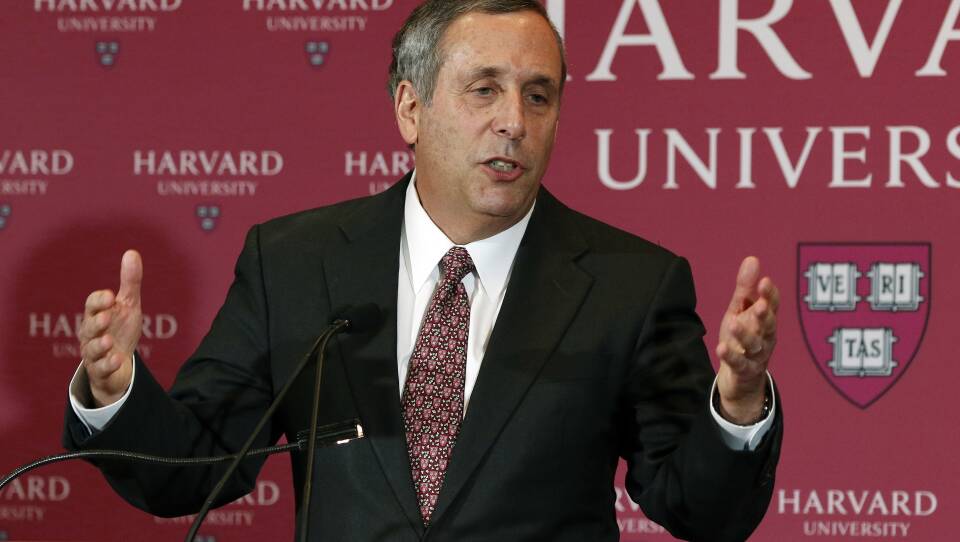On a visit to Washington this week, Harvard University President Larry Bacow criticized the Trump administration's immigration policies and sounded the alarm about its delays in issuing visas to foreign students and scholars.
In a July 16 letter addressed to Secretary of State Mike Pompeo and Acting Secretary of Homeland Security Kevin McAleenan, Bacow said uncertainty around systems used by international students is "driving anxiety and fear on our campuses and undermining the impact of our critical work."
Bacow said the administration's "increasingly unpredictable" process for obtaining student visas poses a risk to what he called the open and collaborative nature of American colleges.
Visa delays are making students' attendance and engagement on campus difficult, he said, and some students have even reported having their visas denied.
Similarly, he said international scholars have experienced disruptions in what had previously been routine matters, such as obtaining family visas and clearance for overseas travel.
Bacow also expressed concern about the uncertainty of the status of "dreamers," those who came to the country as young children, and students with temporary status because their home countries have experienced turmoil or natural disaster.
"This poses risks not just to the individuals caught up in it, but also to the entirety of our academic enterprise," Bacow wrote.
Out of a stated concern about the theft of intellectual property and espionage, the Trump administration has implemented a series of visa and other immigration restrictions affecting students and scholars from abroad. For example, a policy unveiled last year makes it easier for international students to be charged with “unlawful presence” in the country. The administration has also increased its scrutiny of visa applicants, demanding more documents in many cases.
Bacow has been in Washington meeting with members of Congress about broader immigration issues and the new federal tax on college endowments.
Starting this year, the federal government is collecting a tax on the investment gains of the largest college endowments. That provision of the tax bill President Donald Trump signed in 2017 appears to apply to six colleges in Massachusetts: Harvard, the Massachusetts Institute of Technology, Wellesley College, Amherst College, Williams College and Smith College.
The Treasury Department recently released guidelines for the tax, but Harvard spokesman Jonathan Swain told WGBH News the university is still trying to understand the requirements and implications.
“We are working to analyze the proposed guidance released earlier this month and legal requirements of this new tax," Swain said. "We will continue to work with policymakers and others in the higher education community to push for Congress to re-examine this misguided and damaging provision in light of the Congress' stated goals of increasing access and affordability.”
WGBH News' Esteban Bustillos contributed to this report.





